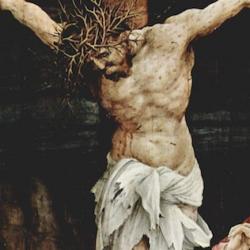John Ciardi (How Does a Poem Mean?, 113)) imagines a “philosophical captain” giving his men a pre-battle pep talk:
“Men of England, here at this brink of battle, let us summon to mind the triumphant image of Saint George the Dragon slayer, and with him ever in our minds as a symbol of our high heritage, let us move resolutely against the foe. Thank you.”
It’s the “Thank you” that seals this – as if the captain had to beg for the attention of his troops. A commander giving such a limp speech would probably have to beg.
Compare that with “Saint George and the Dragon for Merrie England.” This is poetic because it is muscular, a “rhythmic unit to which a man on a horse can swing his sword arm. The phrase involves the whole body in its muscular spasm. And that muscular spasm is far more important than the precise meaning of the statement. The cry is intimately linked with an action. Its function is to make the muscles twitch.”
The philosophical speech doesn’t have the same umph: “the paraphrase has taken the muscular twitch from it. There is about the same different between the paraphrase and the original statement as there is between the Official Rule Book for Intercollegiate Football and the kickoff of the Rose Bowl game.”
A good reminder of the physicality of poetry. And, mutatis mutandis, an exhortation to preachers, who are called to preach the text rather than to philosophize abstracted over it. Preaching that doesn’t produce that muscular twitch needs an upgrade. Preachers should aspire to poetry.












